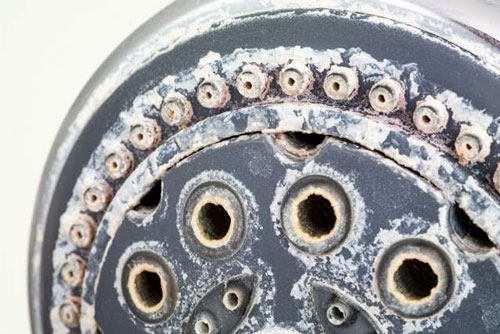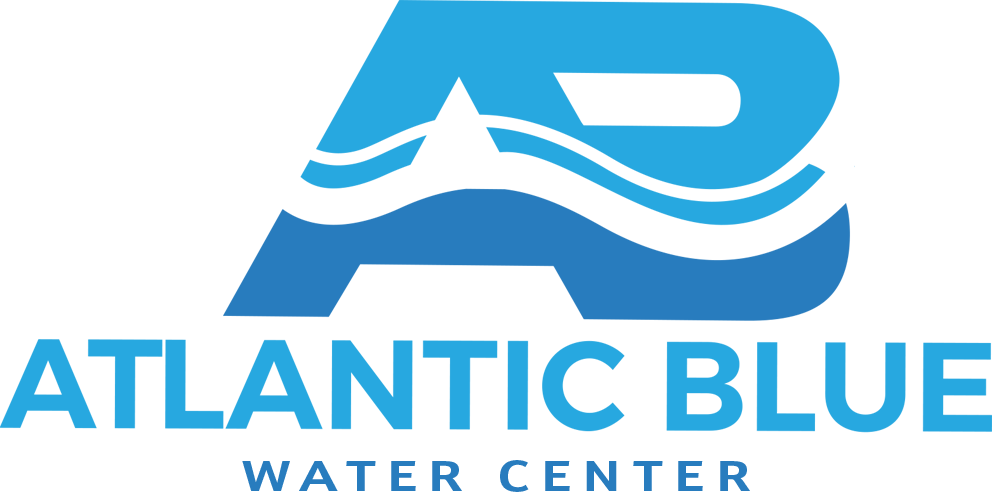If you’re continually facing issues with your appliances, the problem might start in your water supply. Homes that use hard water can experience significant damage to appliances and other home products. If you’re hoping to increase the longevity of your expensive household appliances, it’s critical to avoid hard water.
Using water conditioners and other water treatments to soften your water can help you protect your home from the consequences of hard water. Let’s explore how this works and what you can do in more detail.
What is Hard Water?
Hard water refers to water that has a large concentration of minerals. These minerals dissolve in the water, but can cause visible issues for homeowners. If you have hard water in your home, you may notice deposits of minerals (such as calcium).
If you’re unsure if you have hard water in your home, it’s best to speak to a professional water testing facility. At Atlantic Blue Water Center, we can help you access hard water tests and other water assessments.

How Hard Water Hurts Your Appliances
Hard water can play a significant role on the lifetime and smooth running of your household appliances. We’ve highlighted some of the most common ways that hard water can affect your appliances.
Impact on Washing Machines
One appliance that is drastically impacted by the quality of your water is your washing machine. Minerals from hard water can begin sticking to your washing machine mechanisms. Your lint screen, washing tub, and pump mechanism will accumulate buildup over time; this can result in the breakdown of your machine, which can cost serious money.
Additionally, hard water can impact the power of your washing machine. Certain minerals can affect detergent’s ability to clean your clothes. This means that you won’t be getting the same standard of cleanliness from your washing machine. If you want to increase the power of your washing machine, it’s wise to consider softening your water.
Impact on Dishwashers
As with washing machines, another appliance that is severely impacted by hard water is your dishwasher. The mechanisms in a dishwasher are particularly prone to mineral buildups, which can result in appliance failure and other costly breakdowns.
Not only will hard water impact your dishwasher’s ability to function, but it can also damage your glassware. As hard water contains many minerals, the minerals within the water will scratch your glassware and cause damage. If you have hard water in your home, you may notice scratches on your glasses and plates.
Impact on Water Heating Costs
Your water heater helps you regulate water temperatures in your home, but minerals can impact its efficiency. As the water heats up, it can form sediments that get lodged inside of your water heater. This can lead to significant damage that will impact your water heater’s ability to function correctly.
If you’ve noticed that your water heater is losing its capabilities, it might be due to hard water.
Impact on High-Efficiency Appliances
As consumers turn towards “high-efficiency” appliances to reduce energy costs and environmental impact, they might not realize that hard water is counteracting their investments. If you’re going to spend money on a high-efficiency appliance, it’s a good idea to soften your water if you want to attain the highest efficiency level from your appliances.
Reduce Your Exposure to Hard Water Using Our Water Treatment
If you want to avoid time-consuming and costly appliance issues down the line, reducing your exposure to hard water is an excellent solution. At Atlantic Blue Water Center, we help clients filter their water and protect their appliances. If you’d like to test your current water supply, feel free to bring a sample to our storefront – we have an in-house testing facility that can assess your water quality.
We can provide conditioners that soften your water. This can help you protect your appliances and plumbing systems from unnecessary mineral exposure. Contact our team at (410) 751-9200 for more information.
